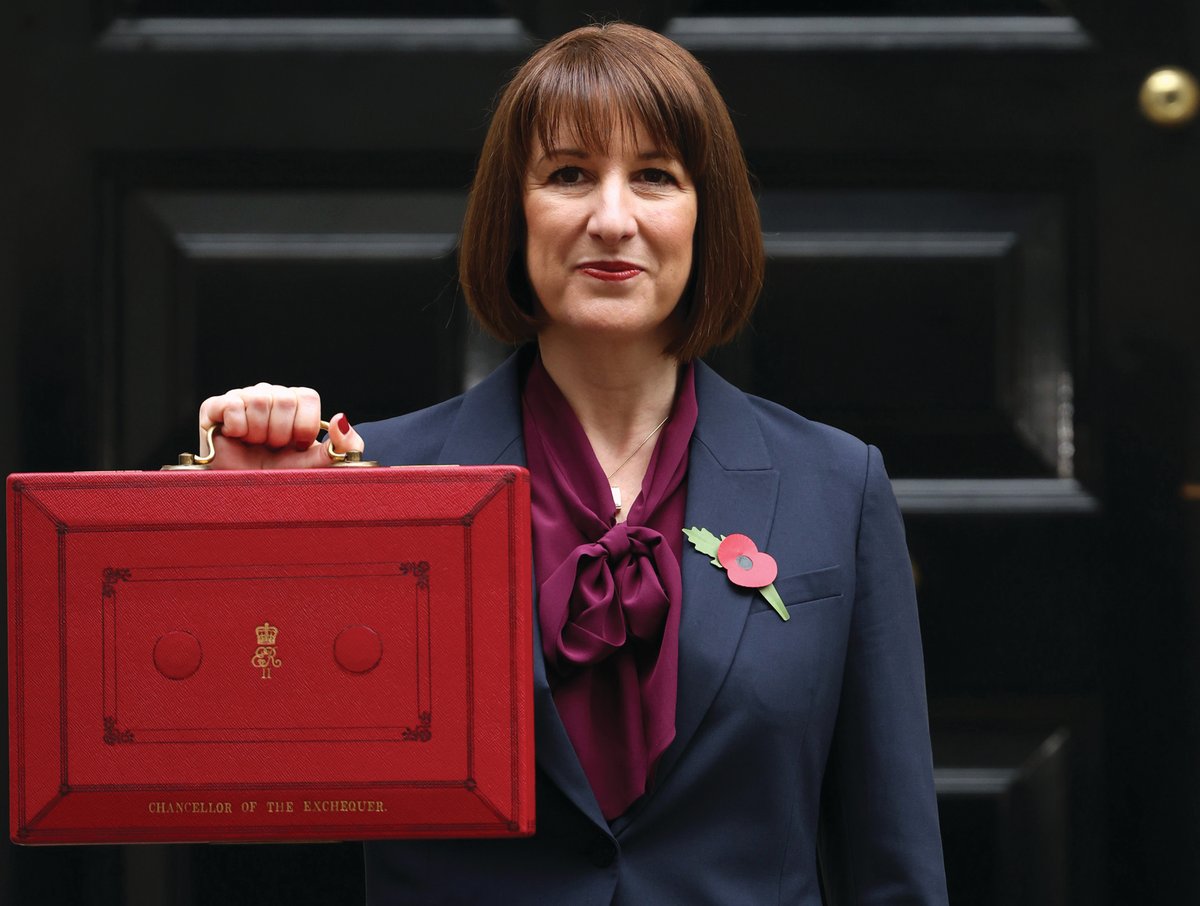Copyright scotsman

Concerns around any changes the UK Government might propose to pensions, Inheritance Tax (IHT) and savings have been gaining momentum in recent weeks. Scotsman Money has gathered the views of a range of experts on what to look out for in this year’s Budget on 26 November, and what they would rather see left well alone by the Chancellor. Firstly, rumours have re-emerged that cash individual savings accounts (ISAs) could be impacted as part of a wider overhaul of savings. A reduction in the tax-free Cash ISA allowance of £20,000 a year is said to be one option under consideration. This has been met with a mixed reception from the industry. Andrew Tully, technical Services director at Nucleus, says: “If the government reduces the Cash ISA limit as has been rumoured then it hopes that will mean people will invest more in Stocks and Shares ISAs. While some may do so, many others will want to continue using a cash-based product such as a bank savings account or a fixed-rate bond. In both cases interest on these will be taxable, unlike a Cash ISA which is entirely tax-free.” Brian Byrnes, head of personal finance at Moneybox, cautions against changes: “Reducing the Cash ISA allowance to encourage higher levels of retail investing is a clear case of the right diagnosis, but the wrong prescription. “While we fully support the government’s ambition to foster a stronger investment culture in the UK, the priority must be to underpin consumer confidence, not to risk undermining it with cuts to Cash ISAs.“It’s a misconception that cash savings are a blocker to investing – they are the enabler. Cash ISAs provide ordinary savers with the peace of mind and financial resilience needed to consider long-term investing. Cutting the allowance on such a popular and important product risks harming saver confidence.” Rory Brand, chartered financial planner with Johnston Carmichael Wealth, says: “If you want to make the UK a nation of investors, increase the Investment ISA allowance, link it to inflation, and incentivise Millennials and GenX to save differently to previous generations for long-term change.” Alex Ranahan, tax analyst at Financial Software, comments: “It would be a shame to see the Brit ISA idea revived. It was a nice ‘blue sky’ thought from the government, but seems entirely unworkable in practice.” Another big pre-Budget talking point centres around pensions, particularly whether the Chancellor has her eyes on reducing the tax-free cash amount. At present, savers from 55 years of age can take out 25 per cent of their pension up to £268,275 as a one-off, tax-free lump sum. Concerns that this amount could be lowered in the Budget may lead to some people acting earlier than they had planned. Similar speculation before last year’s Budget led many investors to withdraw lump sums from their pensions, only to try to row back on that move when the tax-free amount wasn’t changed. Advisers and consumers are now being warned that if they decide to take tax-free cash before this Budget, this move cannot be reversed if the figure is left untouched on 26 November. Financial planners are being told by some providers and platforms that following definitive guidance from HMRC and the Financial Conduct Authority taking tax-free cash is irreversible and people do not have cancellation rights. Tully says: “Unfortunately, reducing tax-free cash is an annual rumour as we approach any Budget, but it can drive poor behaviour. Essentially, people need to try and ignore speculation and take benefits at a time which suits their needs and circumstances. It does illustrate why we need long-term policy to give people certainty to make decisions for their later life, rather than this annual ‘will they, won’t they’ speculation which causes a lack of trust in long-term savings and encourages some people to make poor short-term decisions.” Clare Moffat, pensions and tax expert at Royal London, comments: “Budgets and speculation go hand in hand and, to date, many rumours have centred on potential changes to tax-free cash from pensions. For some, a tightening of the rules may mean they decide to bring forward their plans by a few months. For others though, bringing forward a key element of their retirement planning could have more significant implications for their retirement. It’s important to think carefully before making decisions based on speculation. “Ideally, the Chancellor will leave one of the most commonly understood elements of pensions untouched and confirm no imminent changes – after all, we’d all benefit from stability as far as our long-term savings are concerned. Ultimately, long-term pension decisions may be deferred to the new Pensions Commission, which was announced in July.” Rory Brand wants the government to give people confidence to save for the future by leaving pension legislation alone and guaranteeing that it won’t be changed for this parliament and beyond, saying: “Nobody should have to worry about not being able to access their tax-free cash built up over decades of prudent saving.” And as the Department for Work and Pensions reviews the UK’s auto-enrolment system, and pre-Budget discussions heat up over whether a mandated increase to pension contributions could be on the cards, new research from consultancy Barnett Waddingham has revealed the impact such a change could have on UK businesses. The findings from responses of 500 senior HR professionals and business leaders in the UK point to a worrying level of financial fragility, with as many as one in six firms at risk of insolvency if an increase to employer pension contributions were to be mandated. Just 17 per cent of businesses said they could afford a contribution increase with minimal disruption to their organisation. Martin Willis, partner at Barnett Waddingham, says: “These findings highlight the financial tightrope many businesses in the UK are still walking, exacerbated by the National Insurance hike and long-term wage inflation.” Tom Munro, business consultant at McHardy Private Wealth, comments: “This has to be the most anticipated Budget for many years, with a clear objective of increasing tax revenue as part of a wider intention of growing the staggering economy. “Measures I suspect being considered include capping higher-rate pension tax relief, tightening inheritance rules for unused pensions, and adjusting annual and lifetime allowances. These measures target wealthier individuals without breaching Labour’s pledge to avoid headline tax hikes. “Let’s consider one example of the most viable pension-related revenue strategies, capping higher-rate pension tax relief. Under the current system, higher earners receive 40 per cent to 45 per cent tax relief on pension contributions. One possible change would be to introduce a flat rate of relief, for example 30 per cent, for all taxpayers which could raise billions annually by reducing subsidies for top earners whilst incentivising lower-paid workers to make pension contributions.” There is a lot of discussion around what the government might do to IHT. For example, last year’s changes announced by Reeves impacting farmers and pension savers were met with a backlash. Clare Moffat observes: “Very much prompted by the changes from the last Budget, we may see a change to the rules on Inheritance Tax exemptions on gifting. If this transpires, it would be good to have a simplification to the rules. Changes to pensions and Inheritance Tax will bring additional complexity, so making gifting easier to understand will be welcome – especially for those dealing with the death of a loved one.” Andrew Sutherland, chartered financial planner with Acumen Financial Planning, says: “Ahead of pensions becoming IHT-assessable from April 2027, combining residence nil-rate bands with general Inheritance Tax nil-rate bands would be very positive for our clients, simplifying the IHT regime. “Fearmongering continues to be rife, and a continued lack of a clearly communicated strategy from the government would be the worst outcome, leading to more individuals making poor and often permanent financial decisions second-guessing future policy.” Stuart Walker, chartered financial planner with Johnston Carmichael Wealth, would like to see things kept simple, including making the IHT nil-rate band £500,000 per person and getting rid of the residence nil-rate band. He does not want investments and any form of savings being regarded as “fair game for a tax grab”, adding: “We must stop seeing wealth and prosperity as dirty words.” Michael Edwards, managing director of Financial Software, said: “As a business that focuses on the calculation and reporting of investment-related taxes, I would be very disappointed if the government makes another set of mid-year changes, as it did last year with Capital Gains Tax rates. “Mid-year and retrospective changes to tax rates are costly and risky for an industry that is already stretched and there is little evidence that this approach would raise any additional revenue for the Exchequer. “Calm changes – if any – that come into force on April 6th at the start of the new tax year would be beneficial to investors and all those supporting the industry.”



